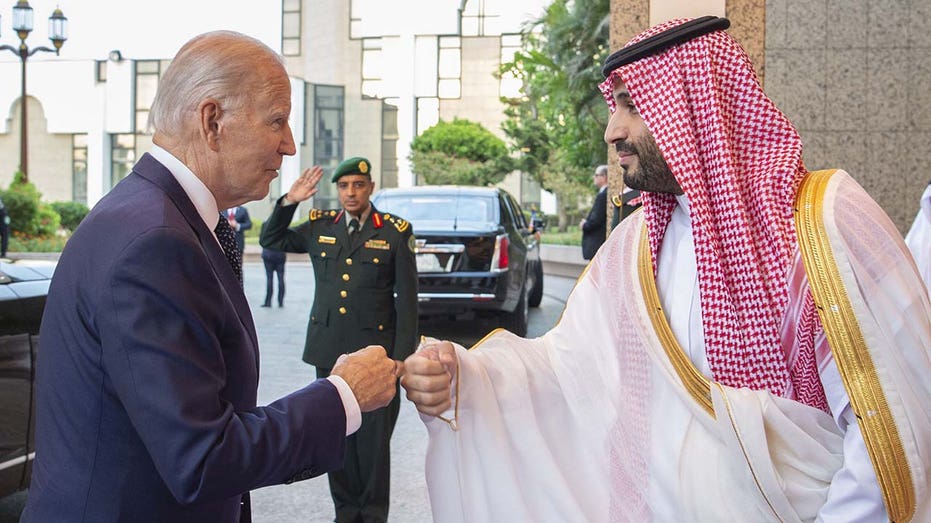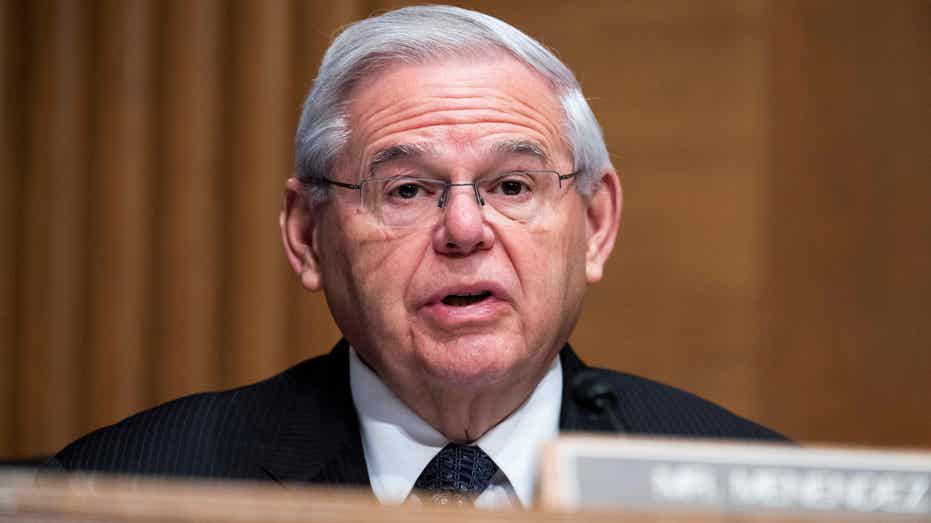State Department begins to decide on 'consequences' for Saudi Arabia
Months after Biden's famous fist bump, a change to the relationship is coming
Biden vows 'we will take action' against Saudi Arabia after oil production cut
President Biden promised Wednesday, "We will take action" against Saudi Arabia after OPEC+ decided to cut oil production.
The State Department said Wednesday it has started reevaluating and resetting the U.S. relationship with Saudi Arabia, one day after President Biden said there would be "consequences" for Saudi Arabia’s decision to side with Russia and cut back oil production.
"There’s going to be some consequences for what they’ve done with Russia," Biden told CNN on Tuesday. "I’m not going to get into what I’d consider and what I have in mind. But there will be consequences."
The Biden administration opposed the decision by Saudi Arabia, Russia and other OPEC+ members to cut oil production by 2 million barrels a day. In a briefing with reporters Wednesday, State Department spokesman Ned Price said the work has already begun on what the U.S. will do about it.
BIDEN BLAMES RUSSIA, SAUDI ARABIA FOR RISING GAS PRICES, TAKES CREDIT FOR RECENT DIP

President Biden is welcomed by Saudi Arabian Crown Prince Mohammed bin Salman at Al-Salam Royal Palace in Jeddah, Saudi Arabia, on July 15, 2022. (Royal Court of Saudi Arabia/Handout/Anadolu Agency via Getty Images / Getty Images)
Price said the department is gathering input from several sources, including members of Congress who have proposed reduced security aid to Saudi Arabia and others who have complained about human rights abuses in that country.
For example, Senate Foreign Relations Committee Chairman Bob Menendez, D-N.J., this week proposed a complete freeze on all cooperation with Saudi Arabia "beyond what is absolutely necessary to defend U.S. personnel and interests."
OPEC+ MINISTERS AGREE TO CUT PRODUCTION BY 2M BARRELS PER DAY
"We’re taking a look," Price said of the range of ideas presented so far. "This will be a process that will play out in the coming weeks and the coming months as we speak with the relevant stakeholders."

A general view shows an oil treatment plant in the Yarakta oil field owned by Irkutsk Oil Company in Irkutsk Region, Russia, on March 10, 2019. (REUTERS/Vasily Fedosenko / Reuters Photos)
Price stressed that officials would be taking a long, hard look at how to tweak the relationship. They want to understand the consequences of some of the changes that some are proposing.
"This is a process that needs to be deliberate, it needs to be deliberative, it needs to be inclusive and it needs to be one that we take great care with," Price said.
White House anger over Saudi Arabia’s decision, just months after Biden met with Saudi Arabian Crown Prince Mohammed bin Salman, is based on the fear that an oil production cut will keep prices high, which, in turn, will give Russia continued access to oil profits that it can use to continue its war against Ukraine. The White House on Tuesday accused Saudi Arabia of siding with Russia in that war.
But Price also said the OPEC+ decision has very serious implications for the state of the U.S. economy.

Senate Foreign Relations Committee Chairman Bob Menendez, D-N.J., is proposing a complete diplomatic decoupling with Saudi Arabia after it supported oil production cuts. (Reuters / Reuters)
"We are in an especially perilous — fragile — I should say, environment," he said. "A fragile economic recovery. An economic recovery that is facing continued headwinds. Headwinds from COVID, headwinds stemming from President Putin’s aggression against Ukraine and the implications it has had in terms of not only energy prices but food prices, commodity prices, some of the other supply chain issues that have resulted from it."
Price added that the decision will "work to the benefit of President Putin."
CLICK HERE TO GET THE FOX BUSINESS APP
When asked why the Biden administration doesn’t act more quickly, Price insisted officials are working as quickly but as deliberately as they can to reach a set of policy prescriptions for Saudi Arabia.
"We’re not waiting. This is a process that is ongoing," he said.




















